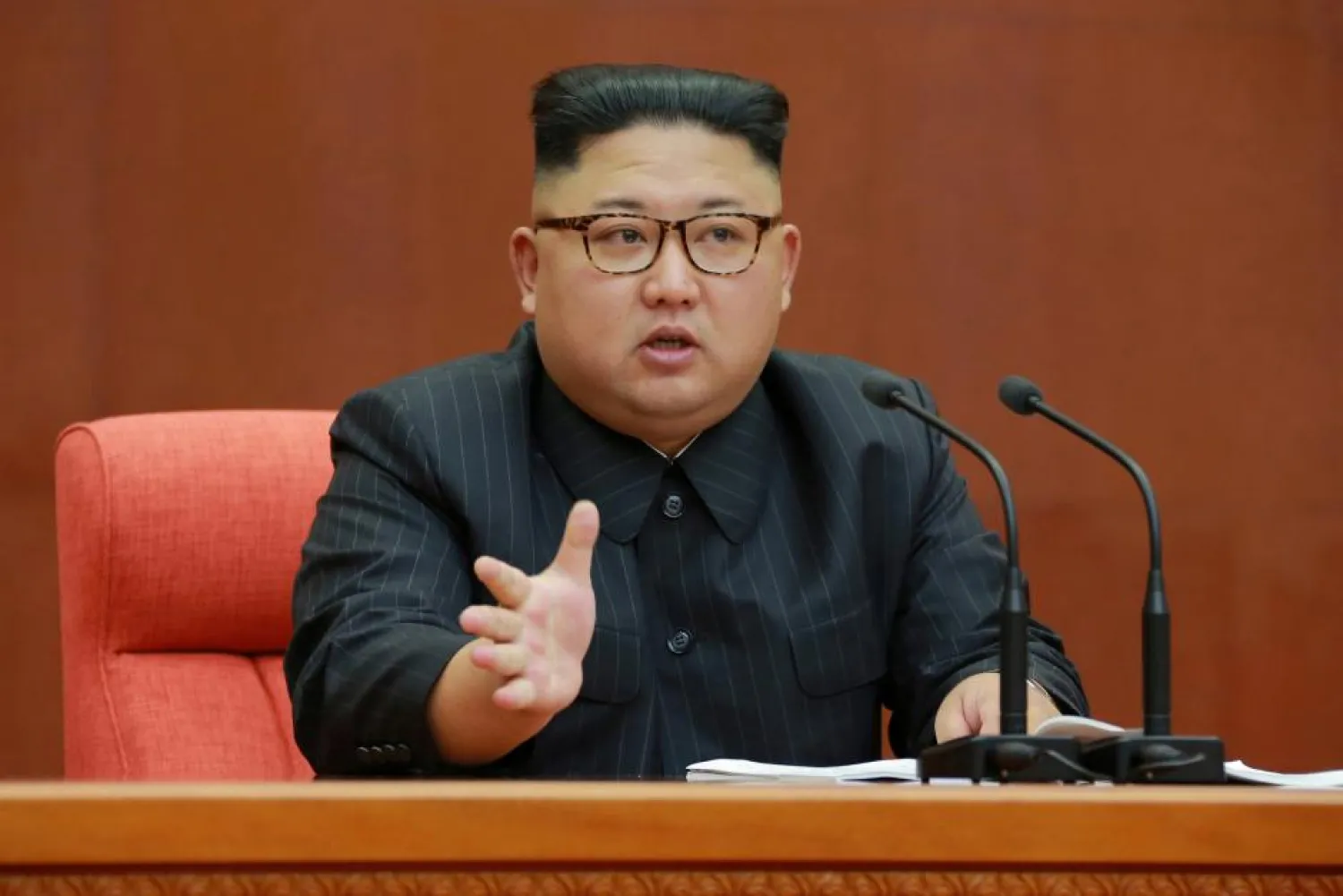North Korean leader Kim Jong Un declared on Sunday that his nuclear weapons guaranteed the sovereignty of his country, state media reported.
North Korea’s nuclear weapons are a “powerful deterrent firmly safeguarding the peace and security in the Korean peninsula and Northeast Asia,” Kim said, referring to the “protracted nuclear threats of the US imperialists.”
He made the declaration a day after US President Donald Trump said “only one thing will work” in dealing with the isolated country.
He did not elaborate on what he was referring, but his comments seemed to be a further suggestion that military action was on his mind.
In a speech to a meeting of the powerful Central Committee of the ruling Workers’ Party, state media said Kim had addressed the “complicated international situation”.
In recent weeks, North Korea has launched two missiles over Japan and conducted its sixth nuclear test, and may be fast advancing toward its goal of developing a nuclear-tipped missile capable of hitting the US mainland.
North Korea is preparing to test-launch such a missile, a Russian lawmaker who had just returned from a visit to Pyongyang was quoted as saying on Friday.
Trump has previously said the United States would “totally destroy” North Korea if necessary to protect itself and its allies.
The situation proved that North Korea’s policy of “byungjin”, meaning the parallel development of nuclear weapons and the economy was “absolutely right”, Kim Jong Un said in the speech.
“The national economy has grown on their strength this year, despite the escalating sanctions,” said Kim, referring to UN Security Council resolutions put in place to curb Pyongyang’s nuclear and missile program.
The meeting also handled some personnel changes inside North Korea’s secretive and opaque ruling center of power, state media said.
Kim Jong Un’s sister, Kim Yo Jong, was made an alternate member of the politburo - the top decision-making body over which Kim Jong Un presides.
Alongside Kim Jong Un himself, the promotion makes Kim Yo Jong the only other millennial member of the influential body.
Her new position indicates the 28-year-old has become a replacement for Kim Jong Un’s aunt, Kim Kyong Hui, who had been a key decision maker when former leader Kim Jong Il was alive.
“It shows that her portfolio and writ is far more substantive than previously believed and it is a further consolidation of the Kim family’s power,” said Michael Madden, a North Korea expert at Johns Hopkins University’s 38 North website.
In January, the US Treasury blacklisted Kim Yo Jong along with other North Korean officials over “severe human rights abuses”.
Kim Jong Sik and Ri Pyong Chol, two of the three men behind Kim’s banned rocket program, were also promoted.
State media announced that several other high ranking cadres were promoted to the Central Committee in what the South Korean unification ministry said could be an attempt by North Korea to navigate a way through its increasing isolation.
Japan's Prime Minister Shinzo Abe said Sunday that his government fully supports the US stance on pressuring North Korea over its nuclear weapons program, with all options on the table.
In a televised debate Sunday among leaders of major political parties, Abe said North Korea had failed to deliver on past promises to give up its pursuit of nuclear technology made during "six-party" talks with Japan, China, the US, Russia and South Korea.
"They used the framework of the dialogue to earn time so that they could develop their nuclear technology," Abe said. "As the result, their nuclear capability has reached to this level and we cannot afford being deceived by them again."









